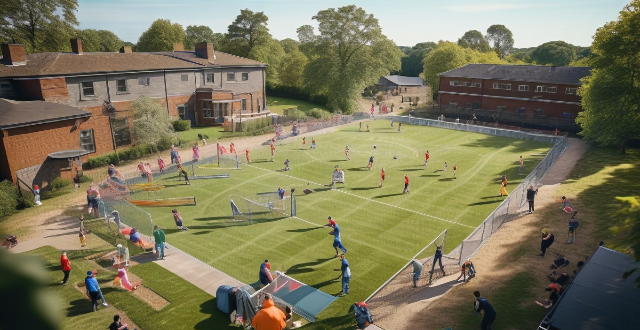The role of a team mascot in sports events includes providing entertainment, building spirit and unity, promoting the team brand, and upholding traditions. Mascots bring joy, engage fans, represent team spirit, promote merchandise, enhance visibility, and connect the team to the community. They are essential elements that contribute to the overall atmosphere and experience of the game.

The Role of a Team Mascot in Sports Events
A team mascot is an essential element in sports events, serving multiple purposes that contribute to the overall atmosphere and experience of the game. Here are some key roles that a team mascot plays:
Entertainment
1. Creating Fun Atmosphere: Mascots bring joy and excitement to the event by performing stunts, dancing, and interacting with the crowd.
2. Engaging Fans: They engage with fans, taking pictures, signing autographs, and participating in games or contests during breaks.
3. Adding Humor: Mascots often incorporate humor into their performances, making the event more enjoyable for everyone.
Spirit and Unity
1. Representing Team Spirit: Mascots embody the spirit of the team, energizing players and fans alike.
2. Building Unity Among Fans: By representing the team's identity, mascots help unify fans under a common banner.
3. Boosting Team Morale: Seeing their mascot can boost the morale of the team players, giving them extra motivation during the game.
Marketing and Branding
1. Promoting Team Brand: Mascots serve as walking advertisements for their teams, helping to promote their brand identity.
2. Merchandising Opportunities: Mascots often lead to merchandise like toys, clothing, and other items that fans can purchase.
3. Enhancing Visibility: A distinctive mascot can make a team more recognizable, increasing its visibility both locally and nationally.
Tradition and Ritual
1. Upholding Traditions: Many mascots have been part of a team's tradition for decades, becoming iconic symbols of their heritage.
2. Pre-Game Rituals: Mascots often participate in pre-game rituals, such as leading cheers or performing specific actions that signify the start of the game.
3. Connection to Community: They serve as a connection between the team and the community, representing the local culture and values.
In conclusion, a team mascot plays a multifaceted role in sports events, from providing entertainment and building spirit to promoting the team brand and upholding traditions. They are not just costumed characters but integral parts of the sporting world that enhance the overall experience for players, fans, and communities alike.